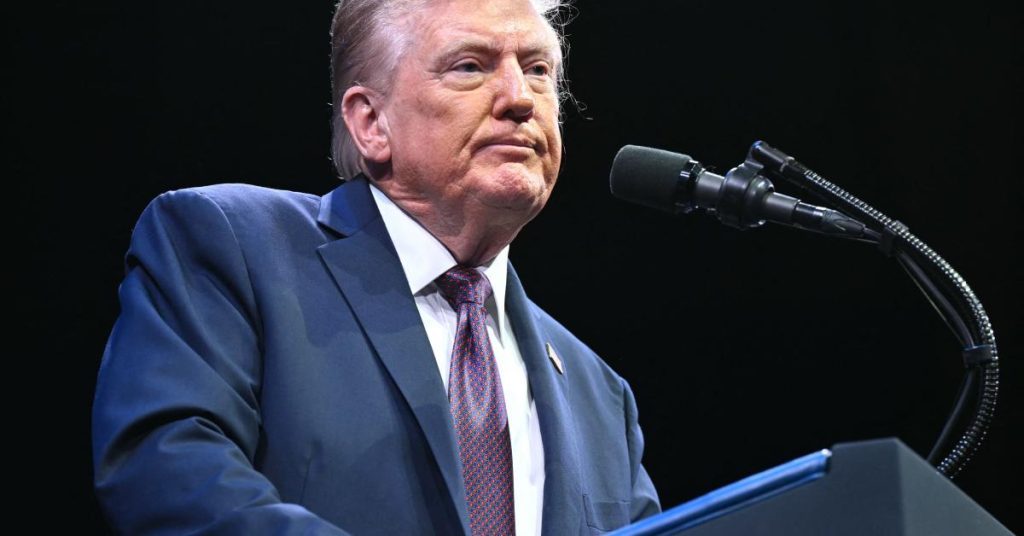Trump to address UN General Assembly amid countries recognizing Palestinian statehood
President Trump heads to the United Nations General Assembly at a moment when a cluster of Western allies are moving to formally recognize Palestinian statehood, and he will make that contrast central to his message. The atmosphere is tense because recognition is being pitched as a quick fix for a complicated security problem, and Republicans see it as rewarding violence. This visit is being framed as a test of whether American leadership will push back against unilateral diplomatic moves that undermine long-term peace and Israel’s security.
Trump plans to deliver the first major speech of his second term at the UN, meeting a slate of leaders who are recalibrating their positions on the Israel-Palestine question. For Republicans, this is not a symbolic moment; it is about strategy and consequences, and about making sure America stands with friends who share our values. Expect a direct, no-nonsense tone that favors negotiation over gestures that could embolden terror groups.
Several European countries and others have announced steps toward recognizing Palestinian statehood, and that shift has conservatives alarmed. Even when couched in calls for ending the war in Gaza and securing hostage releases, unilateral recognition signals to bad actors that violence can win political goals. Republican critics argue that recognition without clear guarantees for demilitarization or a vetted governing authority in Gaza hands power to groups that have proven hostile to Israel and to peace.
The U.S. chose not to take part in an international conference backing a two-state framework and was among the minority opposing a General Assembly resolution supporting the gathering. That decision reflects a Republican view that true peace must be negotiated by the parties with credible security arrangements, not handed down by multilateral fiat. It also highlights skepticism about the UN’s track record on even-handedness in Middle East diplomacy.
On the ground, Israeli leaders have sounded a hard line against the idea of territorial concessions as a reward after brutal attacks. Prime Minister Benjamin Netanyahu said, “I have a clear message to those leaders who recognize a Palestinian state after the terrible massacre on October 7th, 2023: You are giving a huge reward to terrorism.” That statement captures a key Republican argument: rewarding violence undermines deterrence and sets a dangerous precedent for the region.
Netanyahu added, “And I have another message for you: It will not happen. A Palestinian state will not be established west of the Jordan River.” Those words reflect a determination to prioritize Israeli security above international pressure, and they resonate with conservatives who prioritize sovereign defense over diplomatic optics. The bluntness of that position is meant to strip away euphemisms and focus on the concrete realities of who controls territory and what guarantees exist.
On the American side, prominent Republicans have warned that unilateral declarations are counterproductive and play into the hands of extremists. “I think much of that is a reaction to several nations around the world deciding to unilaterally declare a Palestinian state,” one senior Republican observed about the diplomatic wave. The concern is that such moves can embolden Hamas and other groups by offering political legitimacy without demanding the reforms and security assurances that make peace durable.
“We warned them that we thought that was counterproductive. We actually think it’s undermined negotiations, because it emboldened Hamas, and we think it undermines future prospects of peace in the region. We thought it was unwise to do that, and I think you’re seeing that as a counterreaction.” Those sentences, delivered straight, summarize the Republican stance that recognition should be earned through verifiable steps, not granted as a reward for violence or out of frustration with stalled talks.
Trump’s itinerary includes meetings with Israeli Prime Minister Benjamin Netanyahu, Syrian President Ahmed al-Sharaa, and Ukrainian President Volodymyr Zelensky, which signals he will press a broad agenda of security, deterrence, and rebuilding America’s international influence. Republicans expect Trump to use the platform to press for concrete outcomes: hostage returns, a plan to prevent terrorist governance, and stronger mechanisms to enforce peace agreements. His approach is meant to contrast with what conservatives view as international grandstanding that lacks enforceable teeth.
Behind the scenes, the recognition announcements from allies like France and the United Kingdom are being watched for their diplomatic consequences, not just their symbolism. Republican leaders argue that if recognition proceeds without a credible partner on the Palestinian side who can guarantee nonviolence and governance reforms, it risks destabilizing the very conditions needed for a two-state solution. The debate is less about whether Palestinians deserve self-determination in theory and more about timing, guarantees, and who holds power where.
The broader Republican narrative frames this moment as another test of whether American policy will be governed by realism and strength or by idealistic gestures that ignore hard truths. Trump supporters will be listening for clear commitments to Israel’s security and for evidence that the administration will resist pressure to accept shortcuts. Republicans want policies that produce lasting security, not temporary headlines.
At the UN, Trump will have an opportunity to outline an alternative path: a disciplined strategy that conditions any recognition on verified security arrangements, dismantling of terrorist infrastructure, and measurable governance improvements. That message aims to keep negotiations grounded in practical steps rather than symbolic moves that could reward violence. The stakes are high, and for conservatives, the priority is protecting allies and preventing future bloodshed through tough-minded diplomacy.
n
h/t: Just The News
n
